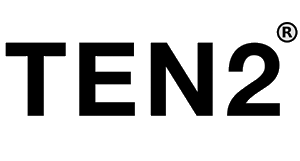1300 vs 1800 Numbers: Which is Better for Your Business?
When setting up your business’s virtual phone numbers, the first obstacle in your path is determining which number should be used. Both the 1300 and 1800 numbers offer exactly the same features and are not reliant on your physical location, so how can you choose one to represent the face of your business during calls?
Fortunately, we are going to delve into the differences between 1300 and 1800 numbers so you can make the most informed decision possible. The major differences lie in the Call Costs, which will be outlined clearly for you and your business’s benefit.
What are 1300 numbers?
A 1300 number is identified by its sharing of call costs between the caller and your business. Regardless if it is a local call from a mobile phone, or national calls received through a fixed line phone, the costs will always be split between both parties. However, the exact call cost will depend on which kind of phone line is used.
Australian landline calls to a 1300 number are charged the cost of a local call. Hence, why 1300 numbers are often referred to as Local Rate Numbers. In contrast, mobile calls to a 1300 number will incur higher call costs that are determined by the mobile phone service provider.
Business owners need to be aware that they will always have to pay a split cost as the holder of a 1300 number. The call rates are also determined by your service provider, so it is beneficial to check the details of those charges with your provider ahead of time.
What are 1800 numbers?
Alternatively to 1300 numbers, an 1800 number for your business means that the caller is never charged for making a call to you. Instead, the Call Cost is taken on by the business only. This means all 1800 numbers dialled from an Australian landline have always been free of charge for the caller. Thus, they have been also called Toll-Free Numbers or Free Call Numbers because of it.
In the past, mobile phone calls to 1800 numbers required callers to split the cost with the business handling the incoming calls. The exact price was dictated by the phone provider, much like 1300 numbers. However, this pricing has since been changed, allowing Australians nationwide to make free calls to 1800 numbers from their mobile phone.
The exact cost to businesses receiving incoming calls to their 1800 number is dependent on their mobile provider. Thus, if you are considering how to begin managing incoming calls for your venture, know that both a 1300 or 1800 number will require you to cover most if not all of the call costs.
Differences between a 1300 and 1800 number
In order to understand which number is best for your business, it is crucial to understand the differences between 1300 or 1800 numbers. While they may seem similar in many ways, with both providing reliable ways to make and answer calls, each number has its unique benefits and disadvantages.
1300 number benefits
When it comes to a 1300 number, the benefits for a caller are as follows:
- Standard local call charges from any fixed-line phone anywhere in Australia
- Identical call rates from a mobile phone as those set by a service provider
For a business, the benefits are more noticeable, including:
- A 1300 number often suggests an established enterprise
- Routing options
- Interactive Voice Response (IVR) compatibility
- Inclusive report for inbound calls received
- Each call cost is paid by local and national rates for the duration only
- Compatible with any add-on features chosen
- Can connect to existing numbers, allowing the integration of multiple phone lines
- Cost-effective way to connect to customers across Australia with an easily-remembered number
- Phone companies may offer plans for 1300 numbers that grant customers to make free calls
- Varied options for monthly call plans, each based on incoming call volumes and associated features
- Included minutes for both local and national calls received
1300 number disadvantages
While 1300 numbers offer various benefits to businesses and their callers alike, there are some downsides that come with this particular model:
- It is not toll-free for callers
- Businesses and callers alike must shoulder the call cost
1800 number benefits
For 1800 numbers, there are a multitude of benefits to keep in mind when considering which number is best for your business:
- Callers do not have to pay call charges from a fixed-line phone across Australia, in short, it is toll-free
- The offering of free calls attracts new customers and increases the amount of calls made
- There are no government surcharges incurred for a call
- There is a multitude of routing options available
- Every inbound call comes with a report
- IVR compatibility
- Various monthly call plans on offer, based on incoming call volume and desired features
- The number is compatible with any add-on features
1800 number disadvantages
Looking into 1800 numbers for your business highlights only two main disadvantages. These are as follows:
- Businesses must pay all call charges for the entire duration of an incoming call
- Phone plans do not allow for call inclusions or free talk time
- Often more aligned with Not-For-Profits, Charities and Government rather than commercial business use due to the free call aspect
How to decide which number is better for your business
Now that you have a clear picture of the differences between 1300 and 1800 numbers, as well as their pros and cons, it is time to decide which to pick for your business. There are many factors that you will have to consider when making your decision, including the following:
Costs
It is important to consider the costs associated with each number. With either method, your business will be required to cover the cost of an incoming call. However, a 1300 number also charges callers, which can be a deterrent to many customers looking to contact your business.
Your service provider will determine the exact costs of a call’s duration, but you may also incur additional costs from:
- Number or provider set-up fees
- A monthly service fee from your phone service provider and/or number provider
- Setting up unlimited calls or free talk times
Types of Calls
When looking into a number for your business, considering where your callers are likely to be located can be beneficial. This is because their location can determine the type of call made, which can affect costs, among other factors.
The prominent types of calls made to a business include:
- Local calls: Those calls received within the local and via a landline
- National calls: The calls that are received outside the local area and via a landline
- Mobile calls: Any calls received from a mobile phone, regardless of their physical location
Business Location and Growth
Often, a business’s target market can determine what kind of number it should use. For example, an 1800 number would work better with a local area code since it offers free calls. Hence, those within the area of a business, who are more likely to require their services, can enjoy unlimited calls at no cost to them.
However, the sustainability of a number’s service should also be considered. Businesses set up for significant growth may want to consider 1300 numbers, even with the additional costs to callers. That is because 1300 numbers are sometimes considered to be associated with a ‘well-established’ business. They are also memorable and offer the chance to spell out a word when dialled, providing unique marketing strategies.
When a 1300 Number is Right for Your Business
A 1300 number is the best fit for your business if you:
- Think the business will be able to carry all of the associated costs itself
- Are not worried about the amount and costs of calls from mobile phones
- Desire multiple virtual features, such as call forwarding or voice-to-email
- Know most of your inbound calls are between landlines
- Want a national profile
When an 1800 Number is Right for Your Business
An 1800 number is the best fit for your business if you:
- Are looking for a marketing or advertising boost through offering free calls
- Want to remove any potential barriers that prevent customers from calling
- Looking to expand your business through the benefits of a toll-free number
Successful Business is Just a Phone Call Away
The direction you want to take your business in, as well as its associated costs, are what determine which number is best for your business. Take the time to consider all of your options and which would fit in best with your business’s future and accompanying goals. Whether it is the flexibility and sharing costs of a 1300 number, or the customer-friendly approach of 1800 numbers, any official business number can greatly benefit your business.
If you need more insight into which number is best for your business, contact the experts today at Teleca for their professional consideration. Regardless of which option you choose, you are guaranteed a toll-free number that means business.
AVAILABLE 1300 NUMBERS1300 NUMBER PLANSAVAILABLE 1800 NUMBERS1800 NUMBER PLANSCONTACT US
Customer Reviews
What our customers are saying






